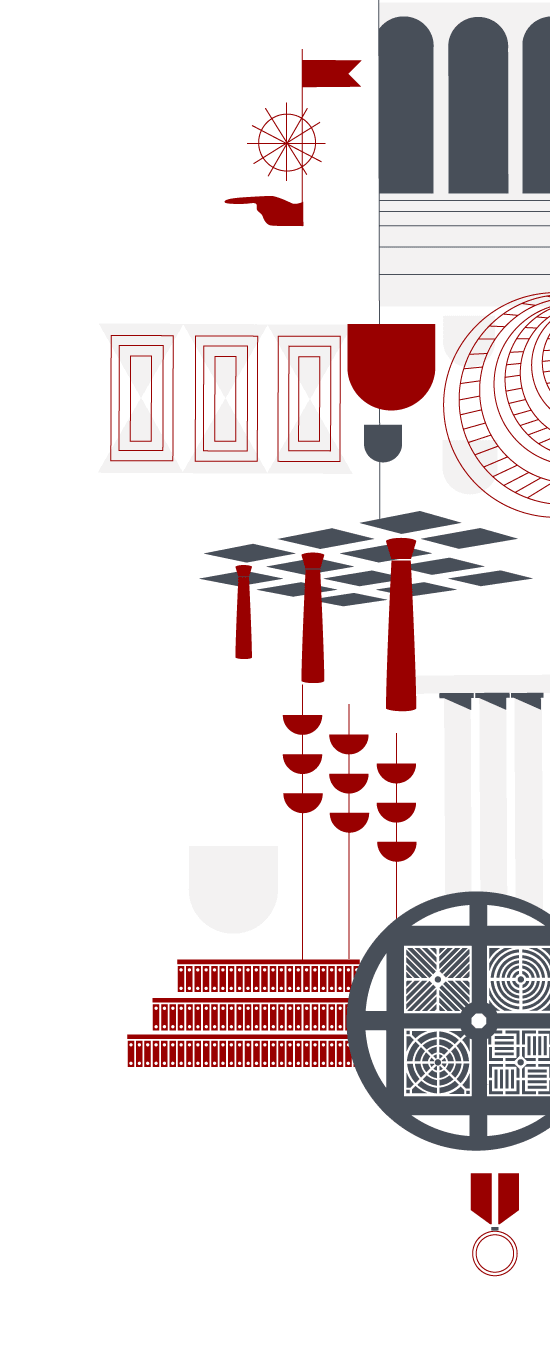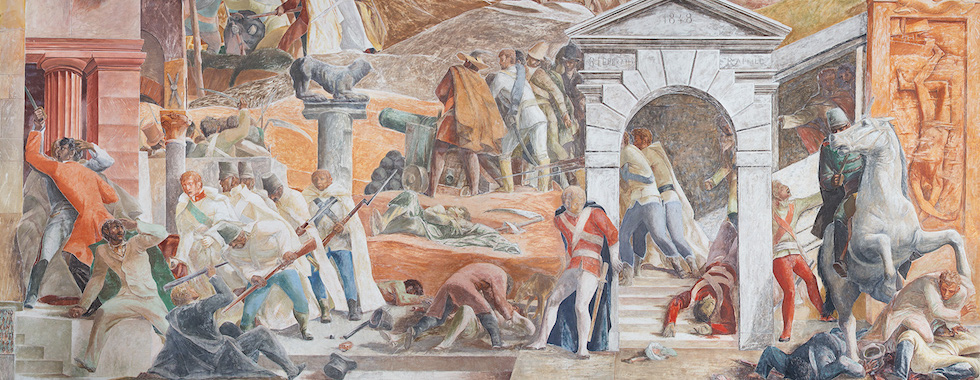
8th February 1848

During the first few months of the year, in a climate of strong political tension that seemed to involve regimes and governments throughout Italy and Europe, a certain anti-Habsburgian feeling was also beginning to take hold in Padua and bring together students and citizens.
On 7 February 1848, 5000 people from all different walks of life took part in a student’s funeral (who had died of natural causes) in the city. Among these, a few hundred young people arrived dressed in a traditional style together with the servants of noble families, in livery, thus challenging the law and in open contrast with the Austrian government. The tension is extremely high.
The next day, a delegation of notables, citizens and students submitted a series of requests to the Austrian command, but they were all rejected. This is how the clash between the Austrian soldiers, the citizens of Padua and the students started. The guerrilla warfare began; the Austrians also opened fire on those students who had sought refuge inside Caffè Pedrocchi and the University. There were scores of injured and several dead people: among these the students Giovanni Leoni and Giambattista Ricci.
The revolt ended with the “surrender” of the Austrian army who withdrew against the imposing number of adversaries; the next day, however, the response came quickly: 73 students were expelled, many arrested and four professors were removed from their post.
The Insurrection of 8th February in Padua is considered to be the first dictated by political motivations in which the students became both interpreters and protagonists of what would later become a veritable season of renewal. A revolution which preceded not only the Five Days of Milan, but also the revolts in great capital cities such as Paris (22-24 February) and Vienna (13 March).
The days of protest of ’48 were followed by others, which, until 1866, would have the students of the University of Padua as their protagonists. They were repeatedly involved in anti-Austrian protests, regularly concluded with arrests and expulsions. This situation culminated in a large protest in 1865 during which hundreds of students set fire to several copies of the Syllabus of Errors by Pius IX in Cortile Antico del Bo.


